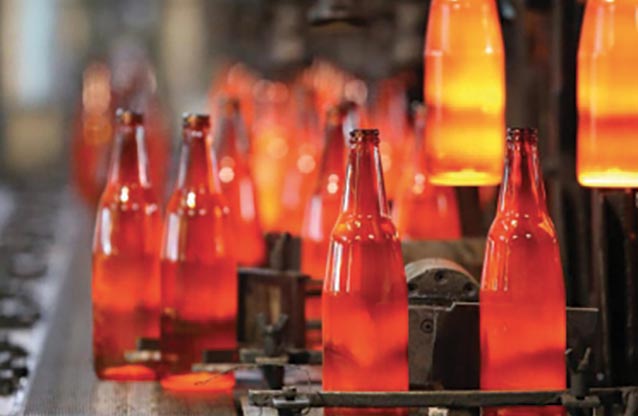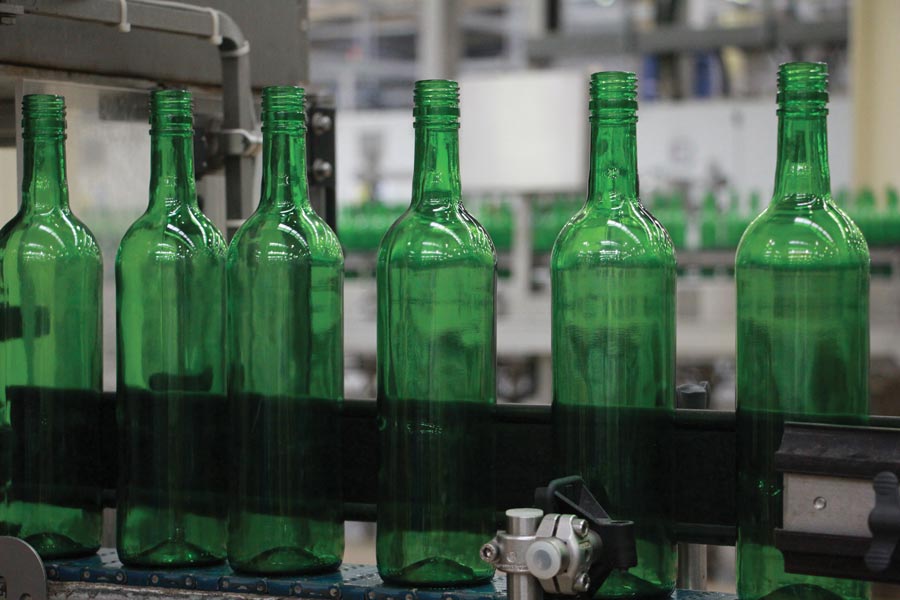The two companies have formed a partnership to develop the world’s most environmentally friendly glass bottle during a trial phase in Derrylin
 |  |

With European glass makers facing tighter self-imposed and European Commission mandated regulations on carbon emissions, leading glass container manufacturer Encirc and industry research and technology organisation Glass Futures are partnering on a ground-breaking project to create what should be the world’s most sustainable glass bottle.
In the first quarter of 2021, Encirc’s Derrylin plant in Northern Ireland will be pioneering the use of bio-fuel on one of its furnaces, and the company is hoping to pave the way for an industry-wide reduction in carbon emissions. The trial is part of a larger research effort by Glass Futures to determine the carbon reduction qualities of electric, hydrogen, bio-fuel and hybrid-fuel melting technologies.
Encirc, part of the Vidrala group, provides services in glass container design, manufacturing, bottling and logistics solutions for the UK, Irish and European food and beverages industries. In addition to the company’s plant in Derrylin, County Fermanagh, they also operate facilities in Elton, Cheshire and Corsico, Italy. Within these plants, the company produces more than 3 billion glass bottles and other containers annually, and can fill up to 250 million litres of bulk shipped beverages every year.
Glass Futures is a not-for-profit company providing research and development and training for the Glass Industry. Its supporters include several major glass companies as well as The Society of Glass Technology, The British Glass Manufacturers’ Confederation, University of Leeds, University of Cambridge, University of Liverpool, FIC (UK), Sheffield Hallam University and University of Sheffield.
Made out of plant materials, bio-fuel is a renewable and much more sustainable fuel source than those traditionally used by the glass sector, and is thought to be able to reduce carbon emissions by up to 90 percent when compared to fossil fuels. Alongside this trial, Encirc will be using up to 96 percent recycled glass to create the new bottles, further reducing the carbon footprint of its products.
The UK trial will be the world’s first, and the results will feed into UK Government policy around decarbonisation. The project forms part of the Department for Business, Energy and Industrial Strategy (BEIS) Energy Innovation Programme, within which Glass Futures is leading a 7.1 million GBP project to help determine the most effective route to switch the glass sector to low carbon fuels. To this end Glass Futures is collaborating with several glass manufacturers to test alternative solutions and grant the industry more options for improving their emissions percentages and energy consumption.
A key focus for Glass Futures, and the bio-fuel project, is further reducing the sector’s carbon footprint and the impact of the glass manufacturing in the UK, future-proofing an industry directly employing 23,000 people.
“Bio-fuel is just one part of the decarbonisation puzzle, but an incredibly important and exciting one,” said Fiacre O’Donnell, Director of Sustainability at Vidrala, Encirc’s parent company. “We’re also looking into the development of hydrogen, and advancements in electric melting to truly discover the future of glass production. We’ve already seen a huge level of interest from beverage suppliers in attaining the ultra-low CO2 containers we’ll be making during the trial, which further suggests how united the industry is in our quest for total sustainability.
“Glass is already a wonder material in terms of sustainability, able to be recycled a limitless number of times without losing any quality. However, as with any manufacturing process, it is still an energy-intensive sector. By working with Glass Futures, we can help pioneer the development of a glass bottle which will truly have no negative impact on the environment.”

Rob Turvey, Sales & Marketing Director at Encirc, added, “This has never been attempted before and is a massively exciting innovation opportunity for us at Encirc, our customers and, of course, their consumers. The trial will help us support our customers in our joint ambitions to decarbonise the container glass supply chains and further demonstrate why glass is the most environmentally beneficial packaging format for the world’s leading food and beverage brands.”
Alongside the 30-day trial, Encirc also has aspirations to boost the sustainability of its logistics operations by switching out their fuel sources for bio-fuel.
“We are proud to be a part of a trial that both BEIS and Encirc have made possible,” said Aston Fuller, General Manager of Glass Futures. “Encirc has taken a pragmatic approach and is pushing the innovation boundaries with a full-scale trial of a new alternative fuel. It is great to see the whole supply chain collaborate to explore what is possible within the industry.
“While the UK glass sector has made progress by more than halving its emissions over the past 50 years, it is vital we work together to advance towards the net zero carbon goal.”
The research conducted during this trial will be vital in the very near future, as the European Commission has recently revised their goals for reduction of greenhouse gases across all industrial sectors. The commission is seeking to reduce emissions as much as 55 percent by 2030, which will put the EU closer towards the goal of climate neutrality by 2050. Additionally the commission is setting goals for industries to use 32 percent more renewable energy, and is seeking at least a 32.5 percent improvement in energy efficiency.
If these goals are to be met, they will depend greatly upon research projects like Encirc’s upcoming trial. The glass industry has already made great strides in reducing their carbon footprint and energy consumption, but if projects like this succeed and more companies implement these changes, glass manufacturers could be at the forefront of positive climate change.

Encirc
www.encirc360.com

Glass Futures Limited
www.glass-futures.org




